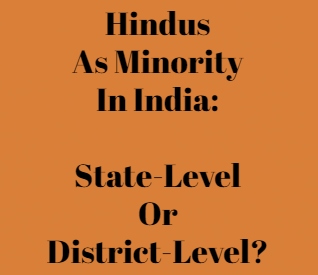

By Sunil Garodia
First publised on 2022-03-31 14:27:16
After the Centre took the stand in the Supreme Court that Hindus can be granted minority status in states (J&K, Punjab and some states in the Northeast) where they are a minority, Assam chief minister Himanta Biswa Sharma has added a twist to the issue by calling for district-wise definition of minority. According to him, since the Hindus are a minority in many districts of the state, the government will push for minority status for them in those districts and the state would try to be party to the ongoing case on the issue in the Supreme Court.
This was bound to happen. Once the status quo is sought to be changed, there is no limit to where the issue will be stretched. If reservation is granted to a class, hundreds of sub-classes in that class start demanding separate reservation. Now if the minority status of a religious community is brought down to the state level, demands will start coming for district-level, taluka-level, thana-level or even ward/panchayat-level definition of minority. This has to be resisted. Although a state is a definite administrative mass and the demand for allowing states to grant minority status to Hindus where they are in minority is legitimate, any further downstream tinkering is fraught with danger.
The Assam chief minister's idea is perhaps borne out of the fact that as per the 2011 Census, more than 9 densely populated districts in Assam have a Muslim population of more than 50%, with Dhubri district topping the list where Muslims make up nearly 80% of the population. Earlier, the BJP used to allege that the demography of these districts had been changed by Muslim infiltrators from Bangladesh. Now with the question of granting minority status to Hindus in some states, Himanta Biswa Sharma has hit upon this idea of demanding the same for them in these districts where they are outnumbered by Muslims.
There are many issues that will crop us if this is allowed. Would the Hindu minority from any of the above districts have minority rights in the rest of Assam or even the rest of the country? Will the Hindu minority educational institutions that will operate with minority rights in these districts be allowed to start branches elsewhere (where Hindus are in majority) and will those branches enjoy minority institution benefits? Would a Hindu, originally resident of any of these districts and enjoying minority status, continue to enjoy the same if he or she relocates to a Hindu- majority district or elsewhere in India? These same questions will also come up when some states declare Hindus as minority in their states but the issue will have wider ramifications if district-level minority status is allowed within the same state. The Supreme Court will have to consider all these questions and many more that will come up before deciding the matter.











